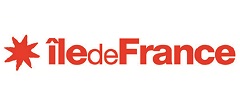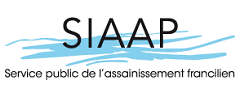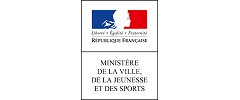Improving education, sanitation and food security in Busi parents' primary school
By providing hygienic toilets with privacy and hand wash facilities, WECF improves in cooperation with local partner ARUWE education and sanitation conditions in Busi parent's primary school (Uganda)
08.04.2016 | WECF Project
| Countries: | Uganda |
| Donors: | Erbacher Stiftung |
| Partners: | ARUWE |
| Issues: | Sanitation, Safe Water, Education, Food Security |
| Duration: | 10/2015 - 09/2016 |

Already since 2000 WECF is running a project for environmentally sustainable agriculture in rural Uganda, reaching more than 10.000 farmers. WECF is in close contact with local partners and visits them frequently to be informed about the situation in rural Uganda.
However, many schools in rural areas have a lack of safe access to WASH (Water, Sanitation and Hygiene) despite its crucial role for education. Although many new schools have been built, only a few were provided with sufficient sanitation and hygiene standards. The situation is even worse in old schools which causes that girls and female teachers don't attend school during their menstruation.Furthermore, teachers and pupils drink too less in order to avoid using the smelling latrines. The surrounding of the latrines are oftentimes contaminated with faeces which poses a risk for the health of pupils that are commonly walking barefoot.
WECF's project at Busi parents primary school in Uganda
Busi primary school is a public school built in 1990 that belongs to the municipality of Busi-Islands in Lake Victoria. The population of Busi-Islands lives on fishing and susbsistence agriculture and is belonging to the poorest parts of Uganda which is accompanied with high unemployment and a lack of perspective for the youth.
498 pupils (242 girls and 256 boys) in the age of 6-15 years attend at the moment Busi school and it has 10 teachers and employees. The school is the biggest in the municapality and was proposed by the local council for the project. The school is organized very well and has got highly motivated staff members. However, like in many public schools the
WASH-infrastructure is at Busi school in an inadequate condition. There are only 2 toilets for boys and 2 for girls which are not separated sufficiently and don't provide any privacy. Each year, around 2% of the pupils leave school early - and this affects especially girls.
Many studies prove that access to sanitation and hand washings contributes even more to prevention of diarrhoea and respiratory diseases than access to clean water. Furthermore, human waste can - if correctly collected and treated like with the Ecosan technology - contribute to mitigation of poverty and improvement of the food situation. WECF have a lot of experience in terms of school sanitation and is motivated to support the municipality and Busi-school with building up safe and humane sanitary facilities.
The project is implemented in cooperation with Action for Rural Women's Empowerment (ARUWE), a local NRO that is working in more municapalities of the region. In 2014, WECF has introduced with ARUWE a bamboo-based Biogas-technology and rainwater harvesting.
Project objectives:
- increasing school attendance of pupils, particularly girls, by providing hygienic toilets with privacy and hand wash facilities
- demonstrating an ecosan school toilet
- education on environment and agriculture
- increasing food production by using the ecosan products
- training of local NGO, enabling them to replicate the implementation of the school sanitation facility in other communities
- raising awareness on the importance of WASH among the community and among local leaders for the issue school sanitation and ecosan
- increasing pupils' health
Project activities:
- Kick-off meeting/ introduction of the concept ecological sanitation (Ecosan) to the schools staff and community
- Identify potential local constructors/workers and sources of construction materials for the Ecosan toilet and wash facilities
- Identify local cofunding for construction materials and labor
- Identify the responsibilities for daily management, cleaning and operating the toilet facility
- Sign agreements/contracts with school director and local administration
- Prepare design of Ecosan toilet and wash facilities for 508 users
- Announce tender
- Train local constructors, NGO and school staff on WASH issues, on the principles, construction, operation and maintenance of the Ecosan facility
- Train local NGO, school staff and community members on a safe treatment and reuse of the toilet products for agriculture and gardening
- Implement and facilitate the construction of the Ecosan facility
- Prepare and adapt educational materials on Ecosan and WASH
- Refresh training of NGO, school staff and caretaker on hygienic behaviour, adequate operation and maintenance of the toilet
- Establish school / community gardens for the use of urine as a fertiliser for food production
The Project is funded by the Erbacher Foundation
Related News
Promotion of Healthy and Economical Agriculture and Livestock Farming
How to improve with simple means agricultural cultivation methods and local livestock farming and make them more profitable
08.08.2018
Towards the Implementation of the Sustainable Development Goals (SDGs) in Uganda
A report from the NGO Workshop on Green Technologies and Networking
21.11.2017
In 2016, WECF began a campaign to raise €4,000 in 30 days to install biogas toilet systems for deprived families in Uganda
Not only did WECF reach their goal of 15 toilets, but were able to raise more than €4,600 to install 17 toilets
24.02.2017
November 19, World Toilet Day
New ecosan toilet relief to girls attending Busi Parents School in Uganda
18.11.2016
Implementing SDG 5, 6 and 7 in Rural Uganda
Examples for gender-sensitive and sustainable WASH and energy systems and its implementation
12.07.2016
WECF participated at WASH symposium in Uganda
From June 20th-23rd, a WASH symposium was held in Kampala, Uganda. WECF participated in cooperation with our local partner organization ARUWE and we presented our water, sanitation and energy projects in Uganda.
23.06.2016
We've made it - overwhelming success of our crowdfunding campaign!
In the last 4 weeks we run a crowdfunding campaign to collect 4.000€ to finance 15 Biogas Toilets for deprived families in Uganda. Thanks to your great support we can now build even more!
22.06.2016
Case studies from the EWA project in Uganda
In Uganda, WECF works with local partner organisations to introduce gender sensitivity trainings and conservation agriculture. Two participants in the trainings share their views
29.02.2016
WECF Partner SWAGEN Wins 2015 ONE Africa Award
Each year, the ONE Africa Award celebrates and highlights innovation and progress made by African led civil society organisations
01.12.2015 | Carmen Chan
EWA Uganda: lessons on farming as a business
“I did not know borrowing money affects the profits”
14.10.2014 | WICF











































